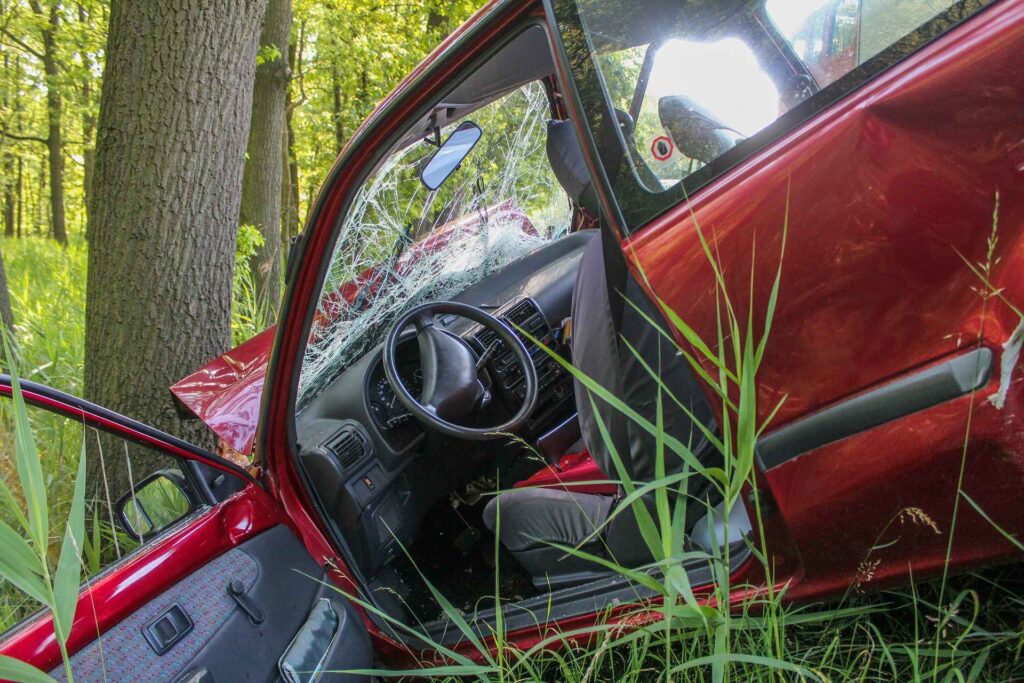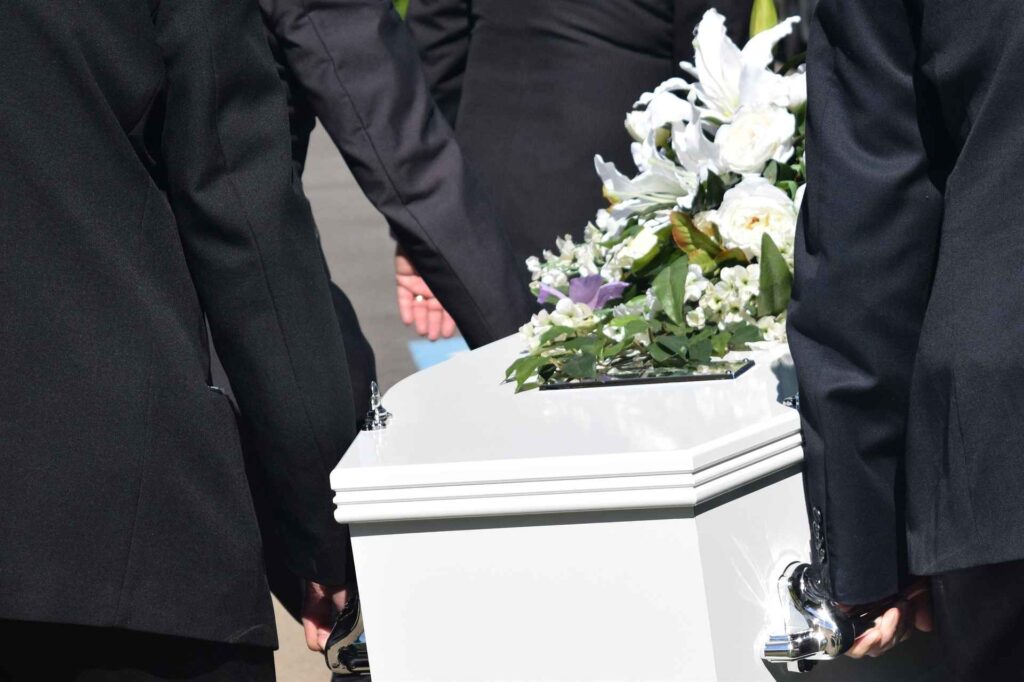Wrongful death is a cause of action to file a civil case against persons who caused another person’s death. Claimants may be surviving family or personal representatives, depending on the state. Common causes include motor vehicle accidents, occupational hazards, medical malpractice, defective products, assault, and battery.
One example is when a police officer shot an unarmed Colorado man. His family members filed a wrongful death suit, alleging excessive force. The complaint alleged the victim was waiting for his younger brother when the deputy dragged him out of the car. A struggle ensued, and the officer shot the victim three times.
Contact a personal injury lawyer if a loved one has died due to wrongful death. They can help you receive damages for financial support and other expenses.
Key Takeaways
|
Establish Legal Standing of Plaintiffs in a Wrongful Death Lawsuit
Legal standing or locus standi refers to a party’s capacity to file a case in court. Lujan v. Defenders of Wildlife provided the test in determining the power to sue. First, the complainant must have suffered a violation of a legally protected interest. It must be concrete, particularized, and actual or imminent.
Second, there must be a connection between the act and the complainant’s injury. Third, it must be likely, rather than speculative, that the court will render a favorable decision to redress the injury.
Family members or heirs
Some states allow surviving family members to file a wrongful death lawsuit but with different conditions. For example, Section 12-612 of the Arizona Revised Statutes allows the surviving spouse, child, parent, or guardian to initiate a wrongful death claim. A personal representative can also file suit on behalf of the immediate family.
Section 3724 of the Delaware Code allows the deceased person’s spouse, child, parent, and sibling to file a wrongful death lawsuit. If none of these survivors exist, any relative by blood or marriage can file a case.
Section 51-4-2 of the Georgia Code identifies the surviving spouse as the primary person with legal standing to file a case. The child may recover from the defendant if there is no surviving spouse. The law gives parents the right to initiate the case if no child exists.
In Tennessee, Section 20-5-106 states that the spouse shall also be the primary plaintiff.The decedent’s child or next of kin becomes the primary beneficiary in their absence. If the victim has no spouse or child, the personal representative can file the case for the spouse’s benefit. Lastly, the parents can also initiate the action.
On the other hand, Section 60-1902 of the Kansas Statutes provides that any heir at law may commence a wrongful death action. An example of an heir-at-law is an adopted child. Section 59-501 includes an adopted child in the list of children who can inherit through intestate succession.
Personal representative
Instead of family members, some state laws allow personal representatives to file a wrongful death suit. For instance, Section 16-62-102 of the Arkansas Code states that the action shall be brought by the representative or the heirs at law.
But some states allow only the executor or administrator to institute the action to benefit a decedent’s heirs. Some examples are Connecticut, Massachusetts, and South Carolina.
Although they have different terms, the executor, administrator, and personal representative oversee a decedent’s estate. In Section 62-1-201(33) of the South Carolina Probate Code, a personal representative includes an executor, administrator, or special administrator.
On the other hand, Section 2-807 of the Maine Statutes allows the personal representative or special administrator to file a wrongful death action. According to Section 3-617 of the Probate Code, the special administrator shall have the power of a general personal representative, but with certain limitations defined by the court.
Prove Liability in a Wrongful Death Suit


A personal injury lawyer may establish liability under negligence and intentional harm. They also consider the corresponding causes of wrongful death.
Negligence
In a wrongful death case, the elements of negligence include the defendant’s legal duty, breach of the obligation, plaintiff’s death, and proximate cause. For example, a speeding driver violates their duty to follow traffic rules. Suppose the speeding incident led to another person’s death. In that case, the decedent’s family or personal representative can file a wrongful death claim.
This happened in Beecher, Illinois, where a pregnant woman and her children were killed in a car accident. According to prosecutors, the 25-year-old driver ran the stop sign while driving over the speed limit. As a result, the driver’s Chevrolet pickup crashed into the family’s Subaru Outback.
Medical malpractice can also be considered a type of negligence, but it has the following elements:
- Medical professional or hospital’s duty to the patient
- Violation of the duty
- The breach caused the patient’s injury
- Resulting damages
Some types of medical malpractice include misdiagnosis, medication errors, and surgical malpractice. For instance, the family members of a 65-year-old older woman sued a hospital for alleged negligence. According to the lawsuit, her child saw maggots coming from her nose. The complaint alleged that the staff failed to clean her nasogastric tube.
Aside from fatal accidents and medical malpractice, nursing home neglect can lead to wrongful death. The Human Rights Watch stated that the pandemic may have led to serious concerns in nursing homes. Interviews with several people revealed that elderly residents suffer from untreated bedsores, extreme weight loss, and mental and physical problems.
In Minnesota, a nurse at St. Mark’s Living did not administer CPR to an elderly resident whose chart indicated resuscitation in case of emergency. A staff member in another nursing home also did not check on a resident with declining health. Unfortunately, both patients died.
Intentional harm
In intentional tort, the wrongful death lawyer must establish the defendant’s intent to commit the act. They must also prove that the defendant’s contact with the deceased person was non-consensual and caused the death. Intentional torts include assault and battery.
For instance, one complaint stated that officers repeatedly tased an African American man, causing his cardiac arrest. The representatives of his estate seek $50 million in damages due to the assault and battery he experienced. They initiated a wrongful death lawsuit against the city of Los Angeles.
A wrongful death suit based on an intentional act differs from a criminal case. A civil lawsuit requires a lower burden of proof called preponderance of the evidence, which is more than 50 percent certainty. In a criminal suit, the prosecution must establish guilt beyond a reasonable doubt.
Your personal injury attorney must also prove general or specific intent. General intent is an intention to commit an act without wishing for a particular outcome. A sample scenario involves a person punching someone without knowing it can cause brain injury and death.
But in specific intent, there is already an intended consequence. For example, a person used a metal pipe to hit a person with the intention of killing the victim. If a bystander hears the suspect saying, “I’m going to kill you,” it might indicate a specific intent.
The differences between general and special intent are essential in determining punitive damages, which will be discussed later.
Demand Recoverable Damages in a Wrongful Death Case


In a wrongful death lawsuit, the beneficiaries or the estate may receive economic, non-economic, and punitive damages.
Economic damages
The surviving family may get reimbursement for economic losses incurred before death. The damages include financial support and compensation for medical bills, repair costs, lost income, and burial expenses.
In case of auto accidents, the family can seek reimbursement for repair costs. For example, the family may need to replace the tires and engine due to the high-impact crash. Sometimes, vehicles in an accident also have cracked windshields and dented car doors.
For example, car accident victims usually experience brain, spinal cord, and internal organs injuries. Doctors often perform surgery to treat these injuries. After surgery, patients will also need rehabilitation care to regain strength. However, these treatment options are costly, so the family must demand financial compensation.
Likewise, nursing home neglect can lead to serious health problems like malnutrition and dehydration. Elderly victims will need medical attention, incurring hospital bills and doctor’s fees. Moreover, they may need surgery in case of fractures.
When victims die after sustaining these injuries and undergoing treatment, the survivors may then file a wrongful death suit. In such cases, the deceased person’s family or estate can receive payment for funeral expenses. Burial costs may include embalming, casket, cremation, and viewing fee.
The dependents can also demand financial support through lost income and loss of earning capacity. Lost income refers to past losses, while loss of earning capacity pertains to future ones. Since the decedent can no longer support their family, the court may order the defendant to pay the beneficiaries.
Non-economic damages
The surviving family may also get reimbursement for non-economic losses. Non-economic damages include loss of consortium, loss of companionship, pain and suffering, grief, and anguish. Hence, this type of compensation refers to the subjective losses that the decedent’s family may experience.
However, some states cap non-economic damages. For example, Section 09.17.010 of the Alaska Statutes states that the court may award non-economic damages not exceeding $400,000. In Colorado, the limit under Section 13-21-102.5 of the Revised Statutes is $250,000.
On the other hand, Section 663-8.7 of Hawaii Revised Statutes sets the limit up to $375,000. But under Section 663-10.9(2), the law states that there is no cap on damages for specific actions, such as intentional and product liability torts.
Another state that limits non-economic damages is Mississippi. The state allows only up to $500,000 in medical malpractice claims filed on or after September 1, 2004. But in case of other personal injury claims, the courts may award non-economic damages not exceeding $1,000,000.00.
Punitive damages
The court might order defendants to pay punitive damages if they acted intentionally or recklessly. Section 51-12-5.1 of the Georgia Code limits the amount of punitive damages to $250,000.00. However, it eliminates the cap in some instances. These include product liability and cases involving a defendant who had been under the influence of alcohol or illicit drugs.
Section 2A:15-5.14 of the New Jersey Statutes caps punitive damages at five times the compensatory damages or $350,000, whichever is greater. Punitive damages seek to punish the defendant and prevent people from repeating the act.On the other hand, Section 29-39-104 of the Tennessee Code imposes a limit of $500,000. The limitation may also be twice the total amount of compensatory damages. However, the limit shall not apply to certain wrongful death lawsuits. There is no restriction on punitive damages if the defendant had a specific intent or was under the influence.
Did you know?
The National Vital Statistics System reported that 224,935 people died from unintentional injuries. It ranked fourth on the most common causes of death.
Find an Experienced Wrongful Death Attorney
Wrongful death leaves families in shock due to the emotional and financial toll. An experienced wrongful death lawyer can handle the legal requirements to build your case. Because of their skills and knowledge, they can increase your chances of willing a wrongful death suit significantly.
The Personal Injury Center can help families who lost loved ones due to negligence or intentional wrongful acts. We offer legal information about wrongful death and other tort law issues.
We can also match you with reputable personal injury lawyers to help you receive fair compensation for wrongful death. Book your free consultation now!
Dealing with wrongful death cases can be difficult for surviving families. Visit the Personal Injury Center for free legal information. Tell us about your loved one’s case today.
FAQs on Wrongful Death Suits
What is the time limit for filing wrongful death suits?
The statute of limitations for wrongful death varies per state. For example, Delaware has a two-year limit on wrongful death lawsuits. In Illinois, you have five years for death resulting from intentional violent acts.
How much is the highest wrongful death settlement?
The court awarded $2.64 billion to Tyler Thomas’s family in a wrongful death suit. Joshua Keadle, the defendant, was convicted of sexual assault and murder.
How does wrongful death differ from manslaughter?
Wrongful death is a civil action, while manslaughter is a criminal case. The family or personal representative files a wrongful death suit. On the other hand, the state files a manslaughter case because it is a criminal matter.



